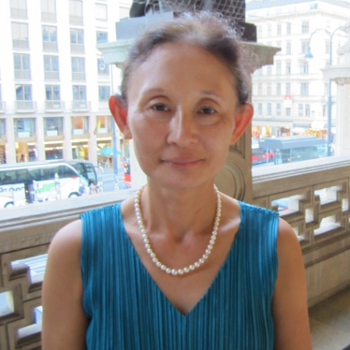The latest crises in Europe, of Greece this summer and now of refugees, have Germany positioned as a political and economic leader of Europe. Andrea Moses' new production of Die Meistersinger at Berlin Staatsoper premiered (partly) on German Unity Day, to mark the 25th anniversary of the reunification of East and West on 3 October 1990. Moses moves the action from 16th century Nuremberg to present day Berlin. The diversities and conflicts in the city are cleverly encapsulated in music drama that honors tradition and yet encourages innovation.
It was a stroke of genius to hire five old-stagers as the Masters of the Guild (here the Chamber of Commerce): Graham Clark, Siegfried Jerusalem, Reiner Goldberg, Franz Mazura (at 91) and Olaf Bar. They each had only a few lines, but were clearly having a great time playing the part of grumpy old masters, thus honoring the old “masters” by bringing them back. The main theme of the opera, to cherish the tradition in art but make it anew, is brilliantly realized.
Jan Pappelbaum's set had rows of benches in a room with wooden walls, with the masters and chorus members milling about. As the prelude began, everyone sat on the bench, facing the audience. Towards the end of the overture, they rose to face the back of the stage, where a priest was presiding, to sing the chorale. The room later opened up to show two levels and appeared to be a conference room where the masters’ names were displayed on a large white cardboard as business logos.
Act II's riot scene is probably the most difficult to stage and took place on the roof top of a building, with Sachs and Pogner signs in neon. Beckmesser, dressed in traditional costume for his serenading, got beaten up by a group of young pranksters, but the gang was soon joined by others, representing various factions and interests in modern Berlin, including its two soccer teams. The chaos depicted became that of the modern day Berlin, with perhaps too much emphasis on stereotypes but nevertheless effective.
Sachs’ study in Act III had a tall bookcase and a painting of old masters. After a brief scene change during the interlude, the crowd gathered in front of the image of Berlin Palace, now under reconstruction, to celebrate with the red, black and gold balloons. A large German flag was ubiquitous through this production, prominently on the side of the stage, and during the Act III quintet the singers began by holding onto the flag but then one by one dropping it as if to equate the birth of a new song with shedding of national boundaries. The old Germany was clearly rejected as Sachs signaled to lift the image of the Palace at the end of his speech to reveal a green meadow. The opera ended with Sachs and Walther on the podium with their backs to the audience looking beyond, joined by the crowd.
Die Meistersinger needs seven strong singers as well as the chorus, and above all, an orchestra with discipline and stamina to get through the music. Wolfgang Koch thrillingly met the vocal and acting challenges. His smooth baritone cut through the dense orchestra, and he depicted Sachs as a human and sympathetic character. His passion for Eva, as well as his grief in renouncing her, was real, but he was also a thoughtful adviser to Walther. Koch's soft singing conveyed delicate nuance of the role that was often heartbreaking.
Klaus Florian Vogt depicted Walther as a fearless youth who was impatient to achieve his goal. His is a voice of unusual beauty combined with strength, and rang out clearly in ensemble, yet his Prize Song was sung with an ethereal quality that was breathtaking. His voice opened up effortlessly to reach the climactic high notes and he was tireless throughout.
Besides Walther’s Prize Song, the most exposed singing of the opera is the beginning of the quintet. Julia Kleiter was an ideal Eva with an evenly produced soprano that was never shrill but maintained its brilliant beauty as the voice rose higher.
Markus Werba coped well with the demands of singing Beckmesser as a pompous and self-deluding character. His comic timing was impeccable. Anna Lapkovskaja was an unusually attractive and rich-voiced Magdalene, and Stephan Rügamer was an experienced and competent David. Kwangchul Youn brought the necessary gravitas and vocal authority to the role of Eva’s father, Pogner.
The Staatskapelle Berlin conducted by Daniel Barenboim played brilliantly, with the maestro bringing out many hidden gems in the score, sometimes in an idiosyncratic manner. The chorus was magnificent. Above all, it was a thrilling new production of the old classic performed in the idiom of here and now.




